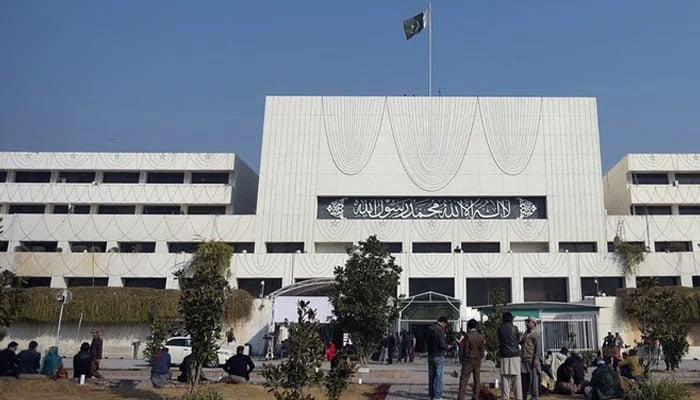Governance gap
Pakistan saw three good administrators during its 77-year history
There is a fine difference between good administration and good governance. Good governance is based on rules and regulations, while rules could be bent without accountability in good administration.
Pakistan saw three good administrators during its 77-year history. The Nawab of Kalabagh served as governor of then-West Pakistan in the 1960s with an iron fist. He maintained law and order and kept the rates of essential commodities stable even during and after the 1965 Pakistan-India war. He kept his family away from the governor's house and denied them perks enjoyed by such families. He did indulge in personal vendetta while in office but was never accused of any monetary corruption.
Then came a brief period of Ghulam Mustafa Khar as governor of Punjab during the early Bhutto era. He managed to keep peace and calm during his tenure.
The third person known for good administration was Shahbaz Sharif. He carried out numerous development works in the province and was famous for the timely or early completion of projects. Mohsin Naqvi, as caretaker chief minister, did the same.But in all these cases, the decisions were taken on whims by these individuals. Rules were not followed in the actual spirit. Enforcements were based on coercion, and people were forced to accept orders by bullying them. Since the administrative step was based on the whim of the top executive, so many rules were broken or bypassed.
In countries where good governance prevails, nothing can move by bypassing rules. The price control in such countries is excellent, irrespective of the person who is at the helm of affairs. The development projects are completed through a transparent process on the scheduled time.
In case a region is managed by a good administrator, things start deteriorating as soon as that administrator is replaced. The lower cadre, used to taking orders and obeying (whether legal or not), first look for directions and, finding none, start taking decisions on their whims and enjoy it.
Rules and regulations are ignored. This creates anarchy that we are facing these days.In Pakistan, we might apprehend a power thief but never probe who aided the thief in that theft. The result is that those caught by bad luck are punished (lightly), but the masterminds of theft enjoy life as ever; they entice some other consumer to ensure that their regular income continues to grow. This goes on in every public sector department. There is no accountability. Perhaps breaking rules or bypassing the law is not a serious crime in the eyes of the rulers.
Good governance is not possible if those at the helm of affairs break the law without being accountable. In fact, in good governance, any public servant would refuse to bend or break the rules on the instruction of the ruling elite or his superior.
The public servant would muster this courage if he is sure that there would be no repercussions for not obeying any illegal order. Those that break rules for any reason are persecuted and removed from the job. Good governance means strictly going by the book, and whoever breaks the rules must be persecuted.
-
 Leonardo DiCaprio's Girlfriend Vittoria Ceretti Given 'greatest Honor Of Her Life'
Leonardo DiCaprio's Girlfriend Vittoria Ceretti Given 'greatest Honor Of Her Life' -
 Beatrice, Eugenie’s Reaction Comes Out After Epstein Files Expose Their Personal Lives Even More
Beatrice, Eugenie’s Reaction Comes Out After Epstein Files Expose Their Personal Lives Even More -
 Will Smith Couldn't Make This Dog Part Of His Family: Here's Why
Will Smith Couldn't Make This Dog Part Of His Family: Here's Why -
 Kylie Jenner In Full Nesting Mode With Timothee Chalamet: ‘Pregnancy No Surprise Now’
Kylie Jenner In Full Nesting Mode With Timothee Chalamet: ‘Pregnancy No Surprise Now’ -
 Laura Dern Reflects On Being Rejected Due To Something She Can't Help
Laura Dern Reflects On Being Rejected Due To Something She Can't Help -
 HBO Axed Naomi Watts's 'Game Of Thrones' Sequel For This Reason
HBO Axed Naomi Watts's 'Game Of Thrones' Sequel For This Reason -
 King Charles' Sandringham Estate Gets 'public Safety Message' After Andrew Move
King Charles' Sandringham Estate Gets 'public Safety Message' After Andrew Move -
 Lewis Capaldi Sends Taylor Swift Sweet Message After 'Opalite' Video Role
Lewis Capaldi Sends Taylor Swift Sweet Message After 'Opalite' Video Role -
 Brooklyn Beckham Plunges Victoria, David Beckham Into Marital Woes: ‘They’re Exhausted As It Seeps Into Marriage
Brooklyn Beckham Plunges Victoria, David Beckham Into Marital Woes: ‘They’re Exhausted As It Seeps Into Marriage -
 Sarah Ferguson Joins Andrew In ‘forcing’ Their Daughters Hand: ‘She Can Lose Everything’
Sarah Ferguson Joins Andrew In ‘forcing’ Their Daughters Hand: ‘She Can Lose Everything’ -
 'Bridgerton' Author Reveals If Actors Will Be Recast In Future Seasons
'Bridgerton' Author Reveals If Actors Will Be Recast In Future Seasons -
 50 Cent Super Bowl Ad Goes Viral
50 Cent Super Bowl Ad Goes Viral -
 'The Housemaid' Lifts Company's Profits: Here's How
'The Housemaid' Lifts Company's Profits: Here's How -
 Michael Douglas Recalls Director's Harsh Words Over 'Wall Street' Performance
Michael Douglas Recalls Director's Harsh Words Over 'Wall Street' Performance -
 Henry Czerny On Steve Martin Created Humor On 'Pink Panther' Set
Henry Czerny On Steve Martin Created Humor On 'Pink Panther' Set -
 Lady Victoria Hervey: Andrew Mountbatten-Windsor's Ex-girlfriend Proud Of Being On Epstein Files
Lady Victoria Hervey: Andrew Mountbatten-Windsor's Ex-girlfriend Proud Of Being On Epstein Files




